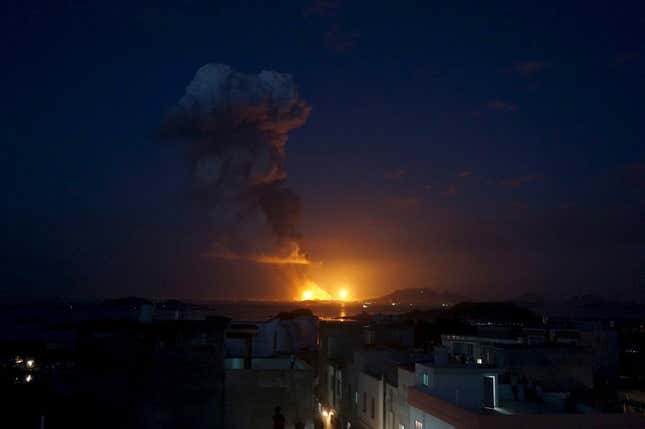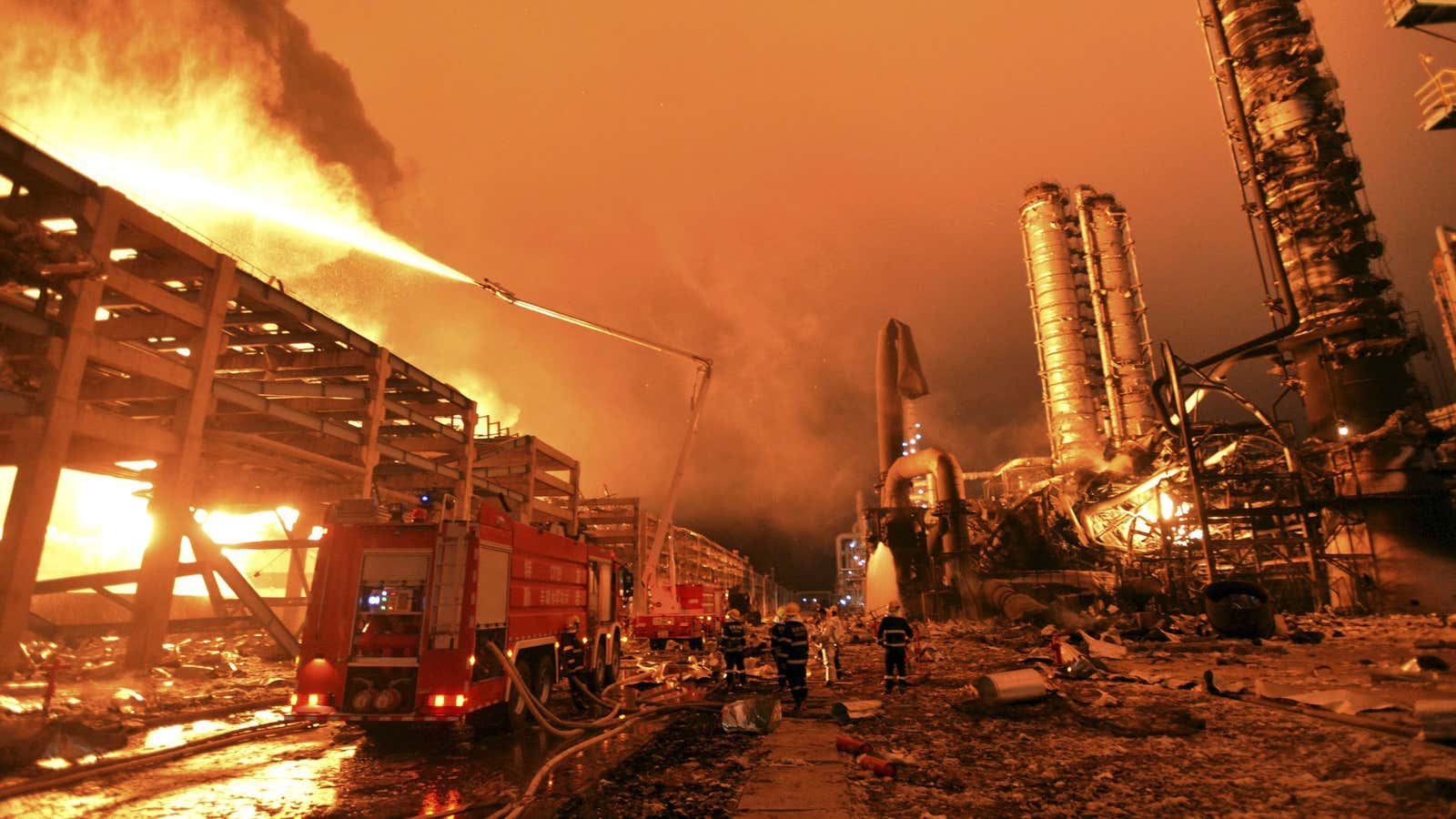The controversial Dragon Aromatics plant in southeastern China exploded yesterday, leaving several injured as firefighters battled a major blaze. According to state media, the accident was caused by an oil spill catching fire.
The Taiwanese-owned plant produced paraxylene, better known as PX, a chemical used in everything from water bottles to clothing and photographic film. When inhaled or ingested it can cause nausea and damage the nervous system. Provincial officials have said that there are no signs of a chemical leak in villages nearby.
The PX plant has long been opposed by local residents: In 2007, tens of thousands of protesters in the city of Xiamen forced local officials to block construction of the facility, in a rare victory of public participation. But the plant was built anyway in the nearby town of Zhangzhou.
After its construction, a Zhangzhou official told a reporter that the PX plant would “definitely never” suffer an accident. Nevertheless, it exploded for the first time in July, 2013.

Witnesses told local media that the explosion yesterday shook the ground and sent a plume of smoke into the sky. According to the state-run news agency Xinhua, a gas station about 1 km (0.5 miles) from the plant had all of its windows blown out, and some residents living near the plant have escaped to nearby islands by boat. Local news reports are citing different casualty numbers, with the People’s Daily citing at least 14 injuries and Xinhua reporting at least three. Criticism online is already being censored.
Dragon Aromatics is owned by Xianglu Group, a Taiwanese petrochemical group, and is one of the largest independently-run PX producers in China—the world’s largest user and producer of the chemical. The country has had trouble keeping up with demand; in 2013, Chinese PX production only met 47% of the country’s needs, Xinhua reported.
That’s in part because of public resistance to more plants producing PX. Large demonstrations have blocked the construction of plants in the port city of Dalian and the southern city of Kunming. And a proposed plant brought thousands of residents in Maoming and Shenzhen in Guangdong province into the streets last year.
